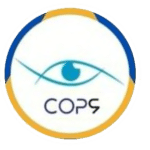Children also have their ophthalmological pathologies and deserve the best care! From birth to adulthood, the eye grows and evolves, it is necessary to have an ophthalmological consultation with a specialist in vision for young people. In our article, you will discover how a pediatric ophthalmology consultation is conducted, as well as when and why you should make an appointment with a practitioner specialized in children and teenagers’ eyes!

When should a pediatric ophthalmology consultation be performed?
Our ophthalmologist reminds us in her interviews in the program Les Maternelles (programme available in french only): There is no age limit to have a consultation.
Nevertheless, it is strongly advised to make an appointment when a child is born prematurely, or suffers from a genetic or chronic disease (e.g. diabetes). In addition, if the parents have a strabismus, wear glasses… It is also advisable to have a consultation in pediatric ophthalmology and mention all hereditary pathologies and the family medical history: this will enable the ophthalmologist to make a diagnosis of your child’s visual field.
At the slightest sign of abnormality (watery eyes, color vision, etc.) or any sign of decreased acuity, we invite you to make an appointment, or even go to the pediatric ophthalmology emergency department if necessary.
Why have a pediatric ophthalmology consultation?
A consultation in pediatric ophthalmology enables the detection of numerous vision disorders and ocular pathologies such as congenital glaucoma or infantile cataracts. This specialty requires specialized skills and instruments. It is about treating a growing eye, different from the adult eye!
Pediatric ophthalmology is a medical specialty, where your child will see an ophthalmologist who specializes in the developing eye. Vision disorders, retinal pathologies, eye diseases… Having an eye exam with a medical team specializing in children and adolescence ensures you quality follow-up care, as provided by our COP9 Vision Center.
Our pediatric ophthalmologist, Dr. Stephanie Zwillinger, is specially trained and equipped to detect, diagnose, treat, and even operate on any ocular pathology of her young patients. At the forefront of research and scientific advances in pediatric ophthalmology, Dr. Stephanie Zwillinger and her medical team perform all surgical procedures with great care and efficiency.
How a pediatric ophthalmology consultation is conducted
Our COP9 ophthalmology center provides comprehensive, multidisciplinary care. First, your child will see the orthoptist, then the ophthalmologist. Our practitioners are presented on our website, do not hesitate to consult their pages!
During a pediatric ophthalmology consultation, your child will be seen first by the orthoptist. It is with this practitioner that you will answer questions such as: the reason for your visit, your general and family medical history (myopia, hyperopia, astigmatism, strabismus, etc.)
This orthoptic specialist then performs the necessary functional explorations to estimate the presence or absence of a visual acuity disorder.
As part of your child’s care, they will then meet with the pediatric ophthalmologist. If necessary, the ophthalmologist can perform additional tests such as a fundus of the eye. In this situation, specific eye drops are instilled, and it will take about an hour to obtain the results of this medical examination.
At the end of the appointment (Monday to Friday at COP9), the pediatric ophthalmologist performs a visual screening of the child, and will determine if there is a need (or not), to set up a course of treatment.
This may mean a need for optical correction, with a prescription for glasses, the start of rehabilitation or treatment, or even pediatric ophthalmological surgery.
The ophthalmologist can also write a prescription for a specialized consultation in psychomotor or neuropediatric, depending on your child’s needs. The COP9 center also has a team of practitioners committed to meeting this need for centralized care. Finally, the schedule for the necessary follow-up care for your child is chosen, depending on their medical and surgical care.
In conclusion, our article on pediatric ophthalmology consultation is designed primarily to increase awareness of the medical conditions that can affect the young. Our multidisciplinary ophthalmology center is here to help the young: do not hesitate to consult an ophthalmologist specialized in children and adolescents!
